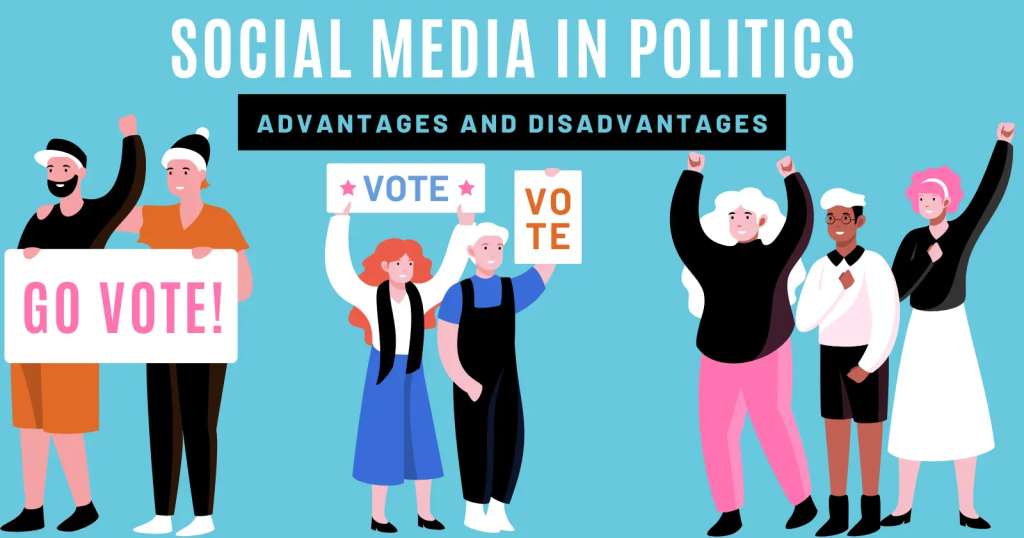In today’s age, social media plays a major role in shaping political awareness. It influences how people think, talk, and learn about politics. This article dives into how social media boosts our politics consciousness, informing citizens and influencing discussions. Let’s explore how these platforms shape political understanding.
The Power of Many Voices
Social media acts as a stage for politics related conversations. Unlike the past, where only certain voices were heard through newspapers or TV, now, anyone can join the discussion. Whether you live in a big city or a small town, social media allows you to share your views. The influence of these platforms grows as more people engage, making their opinions heard.

People post, comment, and debate about different politics related topics in real-time. These exchanges make political discourse more vibrant and inclusive. By talking to people from different backgrounds and places, users get a richer understanding of political issues. This dynamic conversation helps inform people quickly, making political awareness more accessible to everyone.
Facilitating Information Access: News at Your Fingertips
Social media is not just for talking—it’s also for learning. With just a few clicks, you can access breaking news, policy updates, and expert opinions. Gone are the days when people had to wait for the newspaper or watch the evening news. Now, social media gives users immediate access to a wide range of information.
This constant flow of news and political updates keeps people informed. More importantly, it gives them access to multiple perspectives. Whether it’s a government announcement, grassroots movement, or a citizen’s viewpoint, social media provides the tools to engage with political content critically. In this way, it empowers users to stay informed and think deeply about political matters.
Cultivating Political Engagement: Moving Beyond Observation
Social media goes beyond sharing and reading—it inspires action. People no longer just observe; they actively participate. Also, users can join campaigns, advocate for causes, and even mobilize support for political issues they care about. Furthermore, social media platforms make it easy to organize and influence others, giving rise to movements that can impact the landscape.
By participating in political actions online, users influence the wider public’s awareness. They support causes, sign petitions, and take part in protests, whether physically or digitally. Social media, therefore, becomes a tool for engagement, making people more than passive recipients of information. They become influencers of political change.
Fostering Political Dialogue Across Boundaries
Social media connects people from all around the world. This global interaction enriches politics discussions by including voices that might not otherwise be heard. By bringing people together, social media encourages an exchange of ideas across different regions and cultures.
This cross-border communication is powerful. People can discuss global issues, compare government policies, and learn from each other. These interactions break down the walls that separate societies, encouraging a broader view of politics matters. As a result, being politically aware isn’t just a local issue anymore—it becomes part of a global conversation.
Challenging Misinformation
While social media is a great tool for spreading information, it also comes with challenges. One of the biggest problems is misinformation. Sometimes, false or misleading information spreads quickly, causing confusion. However, social media platforms and users can combat this by fact-checking and critically evaluating the content they see.
Being mindful of the information you consume is key. Also, people can become more aware by learning how to spot fake news and finding credible sources. This effort to challenge misinformation improves political understanding and awareness. Informed users are better equipped to make thoughtful decisions and contribute meaningfully to political discussions.
Embracing Social Media’s Influence on Politics
In summary, social media has transformed how we understand and engage with politics. Also, it amplifies diverse voices, making politics related discussions more inclusive. It provides instant access to news, helping people stay informed. Social media also inspires engagement, connecting individuals and communities worldwide. While it presents challenges like misinformation, users can navigate these with critical thinking and fact-checking.
By embracing the influence of social media, people can gain a deeper understanding of politics and contribute positively to the politics landscape. Social media is not just a platform for entertainment—it’s a powerful tool for used for being politically aware and engaged. So, next time you scroll through your feed, remember that your participation shapes the political conversation.
——————————————————-
Visit our website to read politics related articles.



Leave a Reply